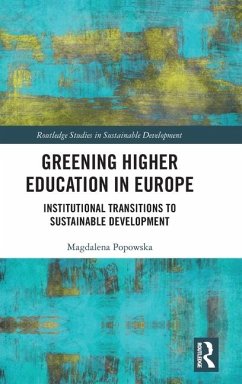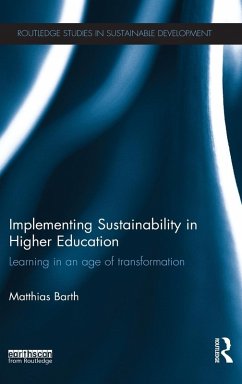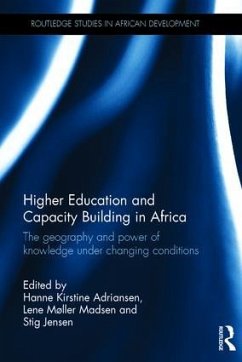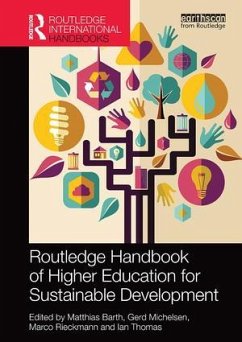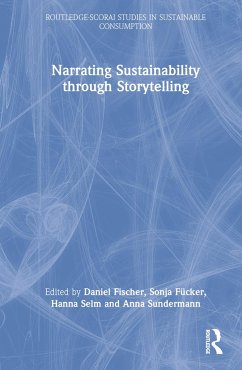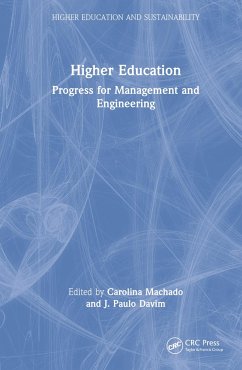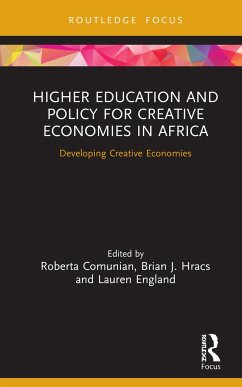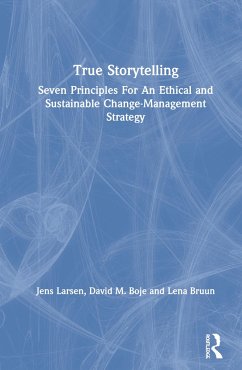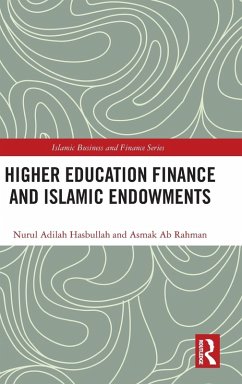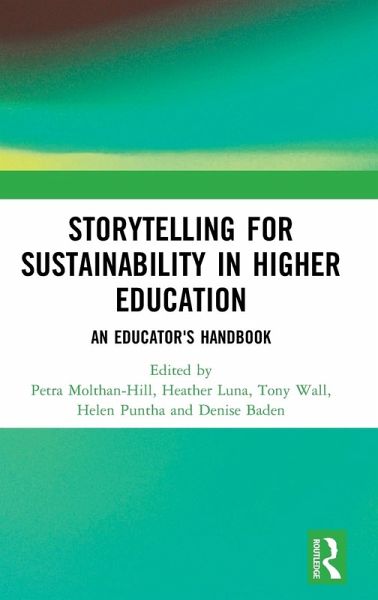
Storytelling for Sustainability in Higher Education
An Educator's Handbook
Herausgeber: Molthan-Hill, Petra; Wall, Tony; Luna, Heather
Versandkostenfrei!
Versandfertig in 1-2 Wochen
170,99 €
inkl. MwSt.
Weitere Ausgaben:

PAYBACK Punkte
85 °P sammeln!
To be a storyteller is an incredible position from which to influence hearts and minds, and each one of us has the capacity to utilise storytelling for a sustainable future. This book offers unique and powerful insights into how stories and storytelling can be utilised within higher education to support sustainability literacy. Stories can shape our perspective of the world around us and how we interact with it, and this is where storytelling becomes a useful tool for facilitating understanding of sustainability concepts which tend to be complex and multifaceted. The craft of storytelling is a...
To be a storyteller is an incredible position from which to influence hearts and minds, and each one of us has the capacity to utilise storytelling for a sustainable future. This book offers unique and powerful insights into how stories and storytelling can be utilised within higher education to support sustainability literacy. Stories can shape our perspective of the world around us and how we interact with it, and this is where storytelling becomes a useful tool for facilitating understanding of sustainability concepts which tend to be complex and multifaceted. The craft of storytelling is as old as time and has influenced human experience throughout the ages. The conscious use of storytelling in higher education is likewise not new, although less prevalent in certain academic disciplines; what this book offers is the opportunity to delve into the concept of storytelling as an educational tool regardless of and beyond the boundaries of subject area. Written by academics and storytellers, the book is based on the authors' own experiences of using stories within teaching, from a story of "the Ecology of Law" to the exploration of sustainability in accounting and finance via contemporary cinema. Practical advice in each chapter ensures that ideas may be put into practice with ease. In addition to examples from the classroom, the book also explores wider uses of storytelling for communication and sense-making and ways of assessing student storytelling work. It also offers fascinating research insights, for example in addressing the question of whether positive utopian stories relating to climate change will have a stronger impact on changing the behaviour of readers than will dystopian stories. Everyone working as an educator should fi nd some inspiration here for their own practice; on using storytelling and stories to co-design positive futures together with our students.





